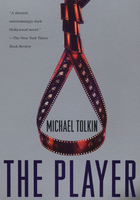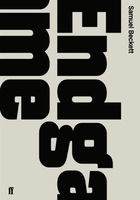That fourth day, then—though indeed the fifth—but to continue.
After the captain had turned to the stern rail I remained for some time endeavouring to engage Mr Cumbershum in conversation. He answered me in the fewest possible words and I began to understand that he was uneasy in the captain's presence. However, I did not wish to leave the quarterdeck as if retreating from it.
"Cumbershum," said I, "the motion is easier. Show me more of our ship. Or if you feel it inadvisable to interrupt the management of her, lend me this young fellow to be my conductor."
The young fellow in question, Cumbershum's satellite, was a midshipman—not one of your ancients, stuck in his inferior position like a goat in a bush, but an example of the breed that brings a tear to every maternal eye—in a sentence, a pustular lad of fourteen or fifteen, addressed, as I soon found in pious hope, as a "Young Gentleman." It was some time before Cumbershum answered me, the lad looking from the one to the other of us meanwhile. At last Mr Cumbershum said the lad, Mr Willis by name, might go with me. So my object was gained. I left the Sacred Precincts with dignity and indeed had despoiled it of a votary. As we descended the ladder there was a hail from Mr Cumbershum.
"Mr Willis, Mr Willis! Do not omit to invite Mr Talbot to glance at the captain's Standing Orders. You may transmit to me any suggestions he has for their improvement."
I laughed heartily at this sally though Willis did not seem to be amused by it. He is not merely pustular but pale, and he commonly lets his mouth hang open. He asked me what I would choose to see and I had no idea, having used him to get me off the quarterdeck suitably attended. I nodded towards the forward part of the vessel.
"Let us stroll thither," said I, "and see how the people live."
Willis followed me with some hesitation in the shadow of the boats on the boom, across the white line at the main mast, then between the pens where our beasts are kept. He passed me then and led the way up a ladder to the front or fo'castle, where was the capstan, the belfry, some loungers and a woman plucking a chicken. I went towards the bowsprit and looked down. I became aware of the age of this old crone of a ship for she is positively beaked in the manner of the last century and flimsy, I should judge, about the bow withal. I looked over her monstrous figurehead, emblem of her name and which our people as is their custom have turned colloquially into an obscenity with which I will not trouble your lordship. But the sight of the men down there squatting in the heads at their business was distasteful and some of them looked up at me with what seemed like impertinence. I turned away and gazed along her vast length and to the vaster expanse of dark blue ocean that surrounded us.
"Well sir," said I to Willis, "we are certainly making way ?π' ε?ρ?α ν?τα θαλ?σση?, are we not?"
Willis replied that he did not know French.
"What do you know then, lad?"
"The rigging sir, the parts of the ship, bends and hitches, the points of the compass, the marks of the lead-line to take a bearing off a point of land or a mark and to shoot the sun."
"We are in good hands I see."
"There is more than that, sir," said he, "as for example the parts of a gun, the composition of powder to sweeten the bilge and the Articles of War."
"You must not sweeten the Articles of War," said I solemnly. "We must not be kinder to each other than the French are to us! It seems to me that your education is piled all on top of itself like my lady mother's sewing closet! But what is the composition of the powder that enables you to shoot the sun and should you not be careful lest you damage the source of light and put the day out?"
Willis laughed noisily.
"You are roasting me, sir," he said. "Even a landlubber I ask your pardon knows what shooting the sun is."
"I forgive you that 'even', sir! When shall I see you do so?"
"Take an observation, sir? Why, at noon, in a few minutes. There will be Mr Smiles, the sailing master, Mr Davies and Mr Taylor, the other two midshipmen sir, though Mr Davies does not really know how to do it for all that he is so old and Mr Taylor my friend, I beg you will not mention it to the Captain, has a sextant that does not work owing to his having pawned the one that his father gave him. So we have agreed to take turn with mine and give altitudes that are two minutes different."
I put my hand to my forehead.
"And the safety of the whole hangs by such a spider's thread!"
"Sir?"
"Our position, my boy! Good God, we might as well be in the hands of my young brothers! Is our position to be decided by an antique midshipman and a sextant that does not work?"
"Lord, no, sir! In the first place Tommy Taylor and I believe we may persuade Mr Davies to swap his good one for Tommy's instrument. It would not really matter to Mr Davies you see. Besides, sir, Captain Anderson, Mr Smiles and some other officers are also engaged in the navigation."
"I see. You do not merely shoot the sun. You subject him to a British Broadside! I shall watch with interest and perhaps take a hand in shooting the sun too as we roll round him."
"You could not do that, sir," said Willis in what seemed a kindly way. "We wait here for the sun to climb up the sky and we measure the angle when it is greatest and take the time too."
"Now look, lad," said I. "You are taking us back into the Middle Ages! You will be quoting Ptolemy at me next!"
"I do not know of him, sir. But we must wait while the sun climbs up."
"That is no more than an apparent movement," said I patiently. "Do you not know of Galileo and his 'Eppur si muove?' The earth goes round the sun! The motion was described by Copernicus and confirmed by Kepler!"
The lad answered me with the purest simplicity, ignorance and dignity.
"Sir, I do not know how the sun may behave among those gentlemen ashore but I know that he climbs up the sky in the Royal Navy."
I laughed again and laid my hand on the boy's shoulder.
"And so he shall! Let him move as he chooses! To tell you the truth, Mr Willis, I am so glad to see him up there with the snowy clouds about him that he may dance a jig for all I care! Look—your companions are gathering. Be off with you and aim your instrument!"
He thanked me and dived away. I stood on the aftermost part of the fo'castle and looked back at the ceremony which, I own, pleased me. There was a number of officers on the quarterdeck. They waited on the sun, the brass triangles held to their faces. Now here was a curious and moving circumstance. All those of the ship's people who were on deck and some of the emigrants too, turned and watched this rite with silent attention. They could not be expected to understand the mathematics of the operation. That I have some notion of it myself is owing to education, an inveterate curiosity and a facility in learning. Even the passengers, or those of them on deck, stood at gaze. I should not have been surprised to see the gentlemen lift their hats! But the people, I mean the common sort, whose lives as much as ours depended on an accuracy of measurement beyond their comprehension and the application of formulae that would be as opaque to them as Chinese writing, these people, I say, accorded the whole operation a respect such as they might have paid to the solemnest moment of a religious service. You might be inclined to think as I did that the glittering instruments were their Mumbo Jumbo. Indeed, Mr Davies's ignorance and Mr Taylor's defective instrument were feet of clay; but I felt they might have a justifiable faith in some of the older officers! And then—their attitudes! The woman watched, the half-plucked hen in her lap. Two fellows who were carrying a sick girl up from below—why, even they stood and watched as if someone had said hist, while their burden lay helplessly between them. Then the girl, too, turned her head and watched where they watched. There was a moving and endearing pathos about their attention, as in a dog that watches a conversation it cannot possibly understand. I am not, as your lordship must be aware, a friend to those who approve the outrageous follies of democracy in this and the last century. But at the moment when I saw a number of our sailors in a posture of such intense regard I came as near as ever I have done to seeing such concepts as "duty", "privilege", and "authority" in a new light. They moved out of books, out of the schoolroom and university into the broader scenes of daily life. Indeed, until I saw these fellows like Milton's hungry sheep that "look up", I had not considered the nature of my own ambitions nor looked for the justification of them that was here presented to me. Forgive me for boring your lordship with my discovery of what you yourself must know so well.
How noble was the prospect! Our vessel was urged forward under the force of sufficient but not excessive wind, the billows sparkled, the white clouds were diversedly mirrored in the deep—et cetera. The sun resisted without apparent effort our naval broadside! I went down the ladder and walked back towards where our navigators were breaking from their rank and descending from the quarterdeck. Mr Smiles, the sailing master, is old, but not as old as Mr Davies, our senior midshipman, who is nearly as old as the ship! He descended not merely the ladder to the level of the waist where I was but the next one down as well—going away with a slow and broken motion for all the world like a stage apparition returning to the tomb. After leave obtained, Mr Willis, my young acquaintance, brought his companion to me with some ceremony. Mr Tommy Taylor must be a clear two years younger than Mr Willis but has the spirit and well-knit frame that his elder lacks. Mr Taylor is from a naval family. He explained at once that Mr Willis was weak in his attic and needed retiling. I was to come to him, Mr Taylor, if I wished to find out about navigation, since Mr Willis would soon have me on the rocks. Only the day before, he had informed Mr Deverel that at the latitude of sixty degrees north, a degree of longitude would be reduced to half a nautical mile. On Mr Deverel asking him—evidently a wag, Mr Deverel—what it would be reduced to at sixty degrees south, Mr Willis had replied that he had not got as far as that in the book. The memory of these cataclysmic errors sent Mr Taylor into a long peal of laughter which Mr Willis did not appear to resent. He is devoted to his young friend evidently, admires him and shows him off to the best advantage. Behold me, then, pacing to and fro between the break of the afterdeck and the mainmast, a young acolyte on either side; the younger one on my starboard hand, full of excitement, information, opinion, gusto; the other, silent, but smiling with open mouth and nodding at his young friend's expressions of opinion on any subject under and, indeed, including the sun!
It was from these two young hopefuls that I learnt a little about our passengers—I mean of course those who have been accommodated aft. There is the Pike family, devoted to each other, all four. There is of course, one Mr Prettiman, known to us all. There is, I learn from precocious Mr Taylor, in the cabin between my own hutch and the dining saloon, a portrait-painter and his wife with their daughter—a young lady characterized by the aforesaid young gentleman as "a regular snorter"! I found this to be Mr Taylor's utmost in the description of female charm. Your lordship may imagine that this news of the presence on board of a fair incognita lent an added exhilaration to my animal spirits!
Mr Taylor might have conducted me through the whole list of passengers; but as we were returning from the mainmast for (it may be) the twentieth time, a—or rather, the—parson who had earlier spewed so copiously into his own face came out of the lobby of the passenger accommodation. He was turning to ascend the ladder to the afterdeck, but seeing me between my young friends, and perceiving me to be of some consequence I suppose, he paused and favoured me with a reverence. Observe I do not call it a bow or greeting. It was a sinuous deflection of the whole body, topped by a smile which was tempered by pallor and servility as his reverence was tempered by an uncertainty as to the movements of our vessel. As a gesture called forth by nothing more than the attire of a gentleman it could not but disgust. I acknowledged it by the briefest lifting of my hand towards the brim of my beaver and looked him through. He ascended the ladder. His calves were in thick, worsted stockings, his heavy shoes went up one after the other at an obtuse angle; so that I believe his knees, though his long, black coat covered them, must be by nature more than usually far apart. He wore a round wig and a shovel hat and seemed, I thought, a man who would not improve on acquaintance. He was hardly out of earshot when Mr Taylor gave it as his opinion that the sky pilot was on his way to interview Captain Anderson on the quarterdeck and that such an approach would result in his instant destruction.
"He has not read the captain's Standing Orders," said I, as one deeply versed in the ways of captains and their orders and warships. "He will be keel-hauled."
The thought of keel-hauling a parson overcame Mr Taylor completely. When Mr Willis had thumped him to a tear-stained and hiccupping recovery he declared it would be the best sport of all things and the thought set him off again. It was at this moment that a positive roar from the quarterdeck quenched him like a bucket of cold water. I believe—no, I am sure—the roar was directed at the parson but the two young gentlemen leapt as one, daunted, as it were, by no more than a ricochet or the splinters flying from where the captain's solid shot had landed. It appeared that Captain Anderson's ability to control his own officers, from Cumbershum down to these babes-in-arms, was not to be questioned. I must confess I did not desire more than the one engagement I had had with him as a ration per diem.
"Come lads," said I. "The transaction is private to Captain Anderson and the parson. Let us get out of earshot and under cover."
We went with a kind of casual haste into the lobby. I was about to dismiss the lads when there came the sound of stumbling footsteps on the deck above our heads, then a clatter from the ladder outside the lobby—which turned at once to a speedier rattle as of iron-shod heels that had slipped out and deposited their wearer at the bottom with a jarring thump! Whatever my distaste for the fellow's—shall I call it—extreme unction, in common humanity I turned to see if he required assistance. But I had taken no more than a step in that direction when the man himself staggered in. He had his shovel hat in one hand and his wig in the other. His parsonical bands were twisted to one side. But what was of all things the most striking was—no, not the expression—but the disorder of his face. My pen falters. Imagine if you can a pale and drawn countenance to which nature has afforded no gift beyond the casual assemblage of features; a countenance moreover to which she has given little in the way of flesh but been prodigal of bone. Then open the mouth wide, furnish the hollows under the meagre forehead with staring eyes from which tears were on the point of starting—do all that, I say, and you will still come short of the comic humiliation that for a fleeting moment met me eye to eye! Then the man was fumbling at the door of his hutch, got through it, pulled it to and was scrabbling at the bolt on the other side.
Young Mr Taylor started to laugh again. I took him by the ear and twisted it until his laugh turned into a yelp.
"Allow me to tell you, Mr Taylor," said I, but quietly as the occasion demanded, "that one gentleman does not rejoice at the misfortune of another in public. You may make your bows and be off, the two of you. We shall take a constitutional again some day, I don't doubt."
"Oh lord yes, sir," said young Tommy, who seemed to think that having his ear twisted half off was a gesture of affection. "Whenever you choose, sir."
"Yes, sir," said Willis with his beautiful simplicity. "We have missed a lesson in navigation."
They retreated down a ladder to what I am told is the Gun Room and suppose to be some sort of noisome pit. The last words I heard from them that day were spoken by Mr Taylor to Mr Willis in tones of high animation—
"Don't he hate a parson above anything?"
I returned to my cabin, called Wheeler and bade him get off my boots. He responds so readily to the demands I make on him I wonder the other passengers do not make an equal use of his services. Their loss is my gain. Another fellow—Phillips, I think—serves the other side of the lobby as Wheeler serves this one.
"Tell me, Wheeler," said I as he fitted himself down in the narrow space, "why does Captain Anderson so dislike a parson?"
"A little higher if you please, sir. Thank you, sir. Now the other if you would be so good."
"Wheeler!"
"I'm sure I can't say, sir. Does he, sir? Did he say so, sir?"
"I know he does! I heard him as did the rest of the ship!"
"We do not commonly have parsons in the Navy, sir. There are not enough to go round. Or if there are, the reverend gentlemen do not choose the sea. I will give these a brush again, sir. Now the coat?"
"Not only did I hear him but one of the young gentlemen confirmed that Captain Anderson has a strong antipathy to the cloth, as did Lieutenant Cumbershum earlier, now I recollect it."
"Did he, sir? Thank you, sir."
"Is it not so?"
"I know nothing, Mr Talbot, sir. And now, sir, may I bring you another draught of the paregoric? I believe you found it very settling, sir."
"No thank you, Wheeler. As you see, I have eluded the demon."
"It is rather strong, sir, as Mr Cumbershum informed you. And of course as he has less left, the purser has to charge more for it. That's quite natural, sir. I believe there is a gentleman ashore as has wrote a book on it."
I bade him leave me and lay on my bunk for a while. I cast back in memory—could not remember what day of the voyage it was—took up this book, and it seemed to be the sixth, so I have confused your lordship and myself. I cannot keep pace with the events and shall not try. I have, at a moderate estimate, already written ten thousand words and must limit myself if I am to get our voyage between the luxurious covers of your gift. Can it be that I have evaded the demon opium only to fall victim to the furor scribendi ? But if your lordship do but leaf through the book—
A knock at the door. It is Bates, who serves in the passengers' saloon.
"Mr Summers's compliments to Mr Talbot and will Mr Talbot take a glass of wine with him in the saloon?"
"Mr Summers?"
"The first lieutenant, sir."
"He is second in command to the captain, is he not? Tell Mr Summers I shall be happy to wait on him in ten minutes' time."
It is not the captain, of course—but the next best thing. Come! We are beginning to move in society!














